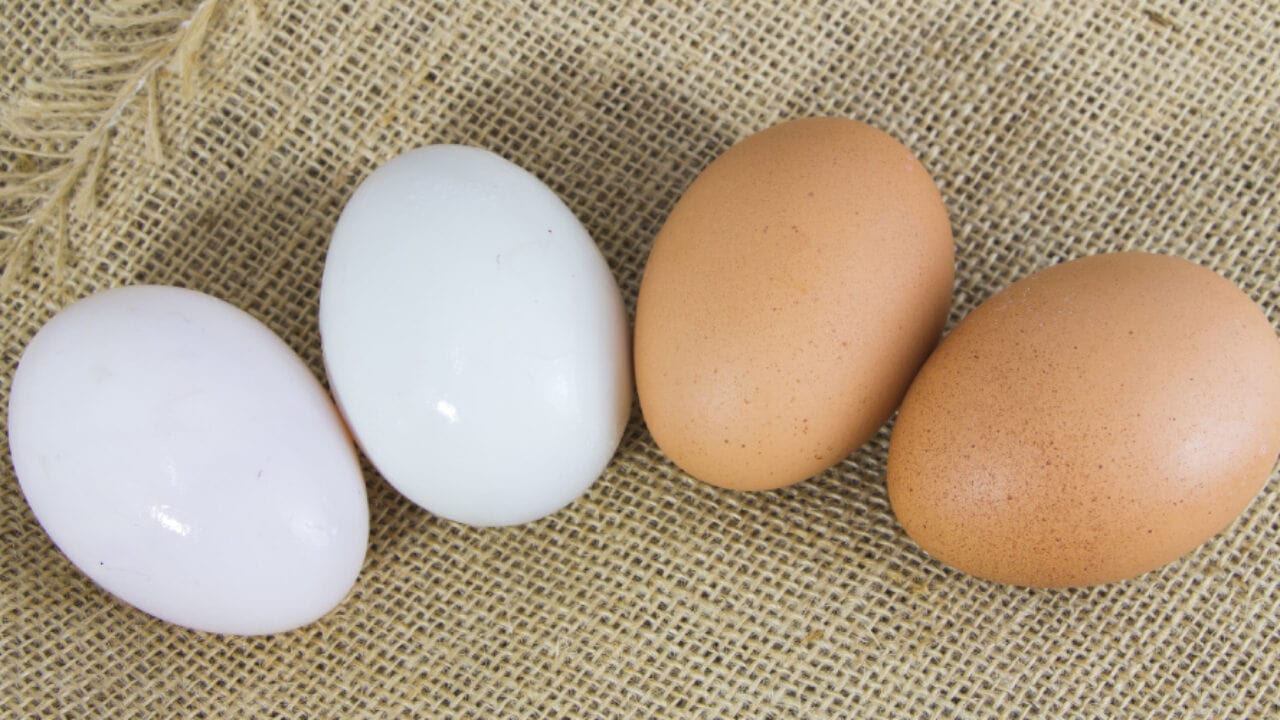The nutritional value of eggs does not depend on the color, whether white, blue, or red (brown). The color difference is caused by breed and pigmentation and does not affect flavor, taste, or health contribution, but diet and environmental factors affect the latter.
Have your realized how people differ widely when it comes to their preferred type of egg? Some believe that the white an egg is, the tastier and fresher it is while others feel that brown eggs are typically healthier and more natural. As such, you might be surprised to know that there is no significant difference when it comes to colors of eggs. Whether white, brown, or blue, the eggs have the same nutritional value and health contribution. Nonetheless, the diet a chicken feeds on, coking methods, and the environment in which it is raised may influence the taste, flavor, and composition of fats across the body. Here is all you need to know about the color implications on eggs and different factors.
What makes an egg white or brown?
Many people wonder what makes an egg have a blue, white, or brown shell and if the difference goes more than shell-deep. Here are some factors that influence egg shell’s color;
Is a brown egg any healthier than a white egg?
Some people have sworn by their noses never to eat white eggs because they tout red ones as healthier. Contrarily, others prefer white eggs, strongly believing that they are tastier and fresher. As such, you may wonder if the differences in white and brown eggs are beyond shell-deep. Thankfully, studies have examined the nutritional profile of different eggs, including blue, white, and brown, and found it to be the same across the board. As such, the size, grade, and taste of eggs do not vary with the colors of the shells. For instance, the eggs’ vitamin, nine essential amino acids, cholesterol contents, and minerals are literally the same. A regular-sized egg has about 80 calories which do not change with color but the cooking method. So, is color a concern when it comes to the quality and health contribution of eggs? The straight answer is no since the nutritional profiles are similar across the board.
Other factors affect the health contribution of eggs other than colors
Blue, white, and brown eggs have the same contribution to a person’s health since they have the same nutritional profile. However, other factors may influence the health bearing an egg will have on a person. For instance, the diet a chicken feeds on influences its nutritional composition. For instance, in the USA, chickens allowed to move about daily and are not restricted tend to lay eggs that have 3-4 times as much vitamin D as those raised indoors and not allowed to move. Studies also reveal that feeding chicken on an omega-3-enriched diet typically gives them more omega- 3 fatty acids than those feeding on a plant diet. Besides, there is a significant difference in how grass-fed and conventionally raised eggs taste. Many people agree that the former may taste slightly better than conventionally raised eggs.
White eggs versus brown eggs: does any taste better?
As with the preference for white or brown eggs, some people believe that white eggs are better-tasting than brown ones, and they are fresher. At the same time, you would never manage to convince some individuals that brown eggs are not necessarily sweeter and tastier than white eggs. As such, many people are left confused and wondering if the shell differences have a bearing on taste. Well, like health contribution or nutrition, tastes do not vary with the color of the shells. Consequently, whether you choose white, blue, or brown eggs, they should taste the same. Still, other factors may influence taste.
Factors affecting tastes of eggs
While the taste of eggs may not vary with color, diet may change tastes. As said before, chickens allowed to roam freely have slightly better-tasting eggs than caged the whole of their life. Besides, enriching eggs with omega- 3 makes them richer but may influence taste. When scrambled, they may taste like any other egg. However, boiling them changes the taste, making such eggs smell and taste more like sulfur. Additionally, cooking, whether boiling, scrambling, or frying eggs, as well as the ingredients used, also have a bearing on the eggs. Lastly, storage conditions also influence the taste whereby letting eggs overstay at room temperature may make them have an off-taste when cooked. However, having the eggs in the refrigerator may help retain the flavor because of the steady temperature and humidity conditions.
Conclusion
Although many people look at brown eggs as healthier and white eggs as tastier, studies show that there are no health or nutritional variations with different egg colors. However, the breed and the pigments impact the color of shells. As such, white or brown eggs should taste the same and render a similar contribution to the body. Still, storage conditions, diet, environments, and age might affect the taste and flavor of eggs.
- FDC – Giejo Magazine Article - July 29, 2023
- MoriMa Tea the – Chinese tea culture - April 26, 2023
- Missionary Position – Least Likely To Bring You To Climax - April 7, 2023








